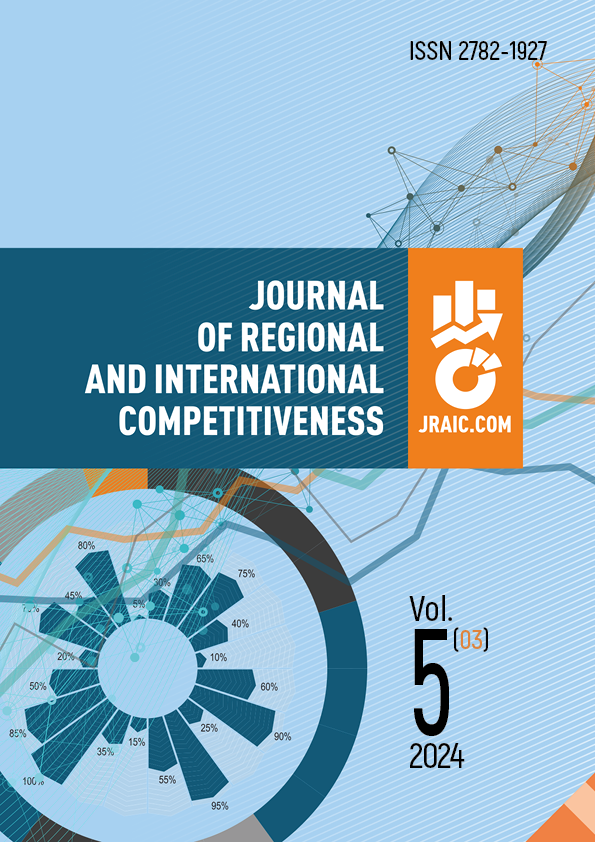Petrovskaya Academy of Sciences and Arts
Kostroma, Kostroma, Russian Federation
Kostroma, Kostroma, Russian Federation
The purpose of the article is to present a scientific substantiation of worldview perception as a decisive economic factor ensuring the functioning of the «Man-Nature» system. The paper offers to discuss research results on the processes of economic time warp and functioning of the general economic space in the abstract equilibrium of political economy phenomena of exchange and distribution in terms of Nature and Labour. Moreover, the paper considers the perspective of worldwide noonomic future economic patterns. Nowadays, it is declared as contributing the destruction of the binary perception of economic science reality. The research methodology is based on the principles of postclassical political economy, the principle of economic relations tensor invariance quantization, the system principle of analysis, the principle of conceptual apparatus consistency. The theoretical basis consists in the concepts of noonomics and physical economics. The scientific novelty of the study identifies extraordinary positions: on the development of multilevel economic systems; on the creation of an economic theory of education in order to provide scientific solutions to practical problems of economics as a model of social development; on the basis of scientific geriatrics. The article allows ones to organise a discussion between those who would like to expand their worldview positions in the search for value judgments about what is happening in the world around them. The human worldview defines every person and the society (economic entities – individual, a collective, a community, as well as an entrepreneur, banker, manager, employee, head or family member) as a whole. According to Yu. M. Osipov, economy and management (not only material-material-consumer, but also ideal-values-existential) define the society existence. It is clearly shown and convincingly proved by the socio-economic reality, including the military one. Worldview is both an economic factor and an object of ideological, moral, cultural and spiritual management.
political economy; methodology of economic cognition; reality; economic future
1. Adorno, T. (2014). Negative dialectics. Moscow: ACT (in Russian).
2. Azroyants, E. A. (2002). Globalisation: a catastrophe or a path to development? Modern trends in world development and political ambitions. Moscow: Izdatel'skij dom Novyj vek (in Russian).
3. Bodrunov, S. D., & Glazyev, S. Yu. (2023). Patterns of formation of noonomics foundations as a future social structure: to know and act. St. Petersburg: INID im. S. YU. Vitte; Moscow: Centrkatalog (in Russian).
4. Buzgalin, A. V. (2009). Kolganov, A. V. We'll go the other way! From "Jurassic capitalism" to the Russia of the future. Moscow: Yauza: Eksmo (in Russian).
5. Valentey, S. (1994). The development of society in the theory of social alternatives. Moscow: IE RAS (in Russian).
6. Voeykov, M. I. (2024). Political Economy: essays and sketches. St. Petersburg: Aletejya (in Russian).
7. Nort, D. (2010). Understanding the process of economic change. Moscow: Izd. dom Gos. un-ta – Vysshej shkoly ekonomiki (in Russian).
8. Osipov, Yu. M. (2024). The Russian Crossroads: from the twentieth century to the twenty-first century 1990-2023: selected texts, including action-packed ones. (In 3 vols. Vol. 01). Tambov Izdatel'skij dom «Derzhavinskij» (in Russian).
9. Pishchulin, O. V., Chekmarev, V. V., & Chekmarev, V. V. (2018). The typo of capitalism on the path of modernization of Russia. Forsajt "ROSSIYA": novoe industrial'noe obshchestvo. Perezagruzka. Sbornik materialov Sankt-Peterburgskogo Mezhdunarodnogo Ekonomicheskogo Kongressa (SPEK-2017). Tom 2. (pp. 288-307). St. Petersburg (in Russian).
10. Sorokin, D. E. (2003). Russia facing a challenge: The Political economy of the answer. Moscow: Nauka (in Russian).
11. Subetto, A. I., & Chekmarev V. V. (2024). "Reality-in-itself" and "reality-for-us" in the dialogues of economists and philosophers. St. Petersburg: Asterion (in Russian).
12. Chekmarev, V. V. (2018). The Great ice drift of economic thought has not yet begun. Materialy Mezhdunarodnoj nauchno-prakticheskoj konferencii "V. I. Vernadskij I perspektivy razvitiya rossijskoj nauki": (k 155-letiyu so dnyarozhdeniya V. I. Vernadskogo), Sankt-Peterburg, 12-13 marta 2018 g. (pp. 13-216). St. Petersburg (in Russian).
13. Chekmarev, V. V. (2023). Why it’s time to talk about noonomics as a possible new development model? Ekonomicheskaya nauka sovremennoj Rossii, (2), 48-58 (in Russian).
14. Chekmarev, V. V. (2023). The spiritual value of labor: a monograph In Buzgalina, A. V., & Yakovleva, N. G. (Eds.). Political economy-XXI: heuristic potential (pp. 449-459). Moscow: Politicheskoe prostranstvo (in Russian).




















